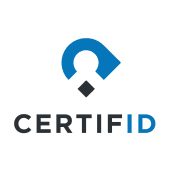Yes, most real estate transaction management software is compatible with different devices and platforms. This encompasses PCs, laptops, tablets, and mobile devices, as well as operating systems including Windows, iOS, and Android. This enables real estate professionals to access their software from anywhere and at any time, making it simple to stay connected and organized while on the go.
List of 20 Best Real Estate Transaction Management Software
Paymints.io is a online solution for revolutionizing real estate transactions. Gone are the days of endless paperwork and excessive fees. With Paymints.io, payments are made effortlessly and environmentally-friendly, providing a secure, more efficien...Read More Paymints.io
Aversure, the premier virtual data room designed for seamless transactions and efficient reporting. Our software provides top-tier security and a user-friendly interface, allowing for smooth work on any device. With Aversure, you can focus on your ta...Read More Aversure
Form Simplicity is a software designed to streamline the management of real estate transactions. Its advanced tools, such as secure cloud storage and seamless integrations with trusted partners, enhance productivity and efficiency. Featuring a user-f...Read More Form Simplicity
brokerWOLF is a real estate software for effective transaction management, accounting, and reporting. Trusted by industry leaders for its proven track record, brokerWOLF streamlines complex tasks and empowers brokers to prioritize delivering top-qual...Read More brokerWOLF
TransactionDESK is a tool to simplify and streamline real estate transactions. Say goodbye to cumbersome processes with our all-in-one platform that includes document management, eSignatures, and compliance tools. Perfect for agents and brokers, Tran...Read More TransactionDESK
BackAgent is intranet platform designed for real estate brokerages, promoting teamwork and transparency within the organization. This secure and customizable workspace allows for effortless communication, document sharing, and workflow management for...Read More BackAgent
iBroker is a software solution for real estate brokers. This powerful tool combines an intuitive interface with advanced features to streamline transaction management and enhance agent productivity. With comprehensive reporting options, iBroker also...Read More iBroker
Reesio is a real estate management platform designed to simplify your transactions. Our user-friendly interface, automated processes, and secure document storage streamline the entire process, promoting collaboration and ensuring compliance. With Ree...Read More Reesio
EZ Coordinator is a software designed to streamline the management of prospects and listings. With its robust capabilities, it ensures that important deadlines are met, resulting in smoother and more successful deal closures. Its user-friendly interf...Read More EZ Coordinator
RealtyBackOffice solution for managing all aspects of real estate brokerage operations. Our advanced software simplifies processes through transaction management, electronic signing, and commission tracking. With secure integration, constant accessib...Read More RealtyBackOffice
CertifID: solution for secure and stress-free wire transfers in Real Estate transactions. Created by title business owners and wire fraud survivors, this software provides up to $1 million in direct insurance coverage. With an impressive track record...Read More CertifID
Realeflow is a Real Estate CRM platform designed to cater to the needs of Enterprises, SMEs, and Startups. Its user-friendly interface offers a wide range of features including Calendar and Campaign Management, Contact and Lead Management, Email Mark...Read More Realeflow
EDGE - Powered by Square Yards is a CRM solution crafted exclusively for the Real Estate sector. Our advanced technology seamlessly integrates with your sales strategies, boosting your sales velocity. From lead generation to nurturing and enabling e-...Read More EDGE - Powered by Square Yards
SAP Hybris Sales Cloud is SFA solution designed to provide businesses with real-time analytics, complete account and opportunity management, predictive analytics, personalized customer insights, and timely notifications. This software allows business...Read More SAP Hybris
SkySlope solution for efficient real estate management. This advanced platform streamlines the entire transaction process, allowing you to handle multiple orders, review files, generate customized invoices, and track compliance in real-time with just...Read More SkySlope
dotloop solution for real estate transaction management. With dotloop, document creation, electronic signatures, and compliance are all simplified, promoting collaboration and eliminating paperwork. This powerful software optimizes productivity and s...Read More dotloop
Qualia is a digital closing platform for real estate professionals and their clients. Simplify the home buying process and ensure security with our comprehensive tools and integrations for title, escrow, and mortgage operations. Say goodbye to delays...Read More Qualia
PlanPlus Online is a web-based solution for managing customers in the sales and marketing industry. With a comprehensive database of 15 million individuals and powerful customer relationship tools, this innovative software maximizes efficiency in pla...Read More PlanPlus Online
BuyBooma - the premier ERP solution designed specifically for Real Estate Promoters. Efficiently manage all aspects of your business, from property management to financial tracking and generating detailed reports for better decision making. With our...Read More BuyBooma
Tango is a lease accounting and management solution. From initial negotiations to asset management, Tango streamlines the entire lease lifecycle with its dynamic features and unmatched flexibility. Eliminate inaccuracies and boost efficiency with Tan...Read More Tango
Learn More About Real Estate Transaction Management Software
- What Is Real Estate Transaction Management Software?
- What Are The Recent Trends In Real Estate Transaction Management Software?
- Benefits Of Using Real Estate Transaction Management Software
- Important Factors To Consider While Purchasing Real Estate Transaction Management Software?
- What Are The Key Features To Look For In Real Estate Transaction Management Software?
- Why Do Businesses Need Real Estate Transaction Management Software?
- How Much Time Is Required To Implement Real Estate Transaction Management Software?
- What Is The Level Of Customization Available In Real Estate Transaction Management Software?
- Which Industries Can Benefit The Most From Real Estate Transaction Management Software?
- Conclusion
What Is Real Estate Transaction Management Software?
Real estate transaction management software is a strong tool that streamlines and simplifies the process of purchasing and selling properties. It is a digital platform that enables real estate professionals, such as agents, brokers, and transaction coordinators, to handle and organize all of the papers and responsibilities associated with a transaction. Document storage and management is a crucial element of real estate transaction management software.
With the increasing number of documentation required in a real estate transaction, keeping track of everything may become difficult and time-consuming. Transaction management software enables users to save and access all relevant papers in a consolidated area, making them easier to identify and manage. Real estate transaction management software also supports task and deadline management.
It enables users to create and assign tasks to various parties involved in the transaction, including buyers, sellers, and lenders. This ensures that everyone is on the same page and that all jobs are accomplished within the allotted time. Another critical feature of real estate transaction management software is its communication capabilities.
It offers a safe and centralized platform for all stakeholders to connect and share updates, reducing the need for several emails or phone conversations. This real-time communication function promotes transparency and minimizes the possibility of miscommunication. Furthermore, some transaction management software supports e-signature, which speeds up and simplifies document signing and processing.
What Are The Recent Trends In Real Estate Transaction Management Software?
In recent years, the real estate business has experienced a substantial shift toward the use of technology to streamline numerous procedures. This is especially noticeable when using real estate transaction management software. Real estate transaction management software is intended to automate and streamline the many stages of a real estate transaction, from initial listing to final close.
This program enables agents, brokers, and other real estate professionals to better manage their transactions, saving time and enhancing productivity. Transaction management software trends move in lockstep with the real estate business. One of the most recent important advancements in real estate transaction management software is the incorporation of artificial intelligence (AI).
AI technology is being used to evaluate data and forecast outcomes, allowing real estate agents to make better educated decisions. This can include anticipating buyer preferences, finding possible leads, and even automating tasks like reminders and notifications. The usage of AI in transaction management software is projected to grow in the next years since it provides considerable benefits in terms of efficiency and accuracy.
Another trend in transaction management software is the migration to cloud-based solutions. Traditional software saves all data and documents on a physical machine or server. However, cloud-based software stores all information in a secure online server that can be accessed from any device with an internet connection. This enables smooth collaboration among all parties engaged in a transaction, as well as convenient access to papers and information on the go.
Furthermore, cloud-based software often provides regular upgrades and maintenance, resulting in a more stable and up-to-date system. Integrations with other real estate tools and software are becoming increasingly prevalent in transaction management software. These interfaces enable a more smooth workflow by eliminating the need for manual data entry and switching between systems.
For example, certain transaction management software can interface with customer relationship management (CRM) software, marketing tools, and accounting software, making the process easier for real estate agents. Furthermore, there is an increasing emphasis on security in real estate transaction management software. Given the rise in cyber threats, it is critical that this type of software has strong security mechanisms in place to secure sensitive customer information and transactions.
This could include two-factor authentication, encryption mechanisms, and regular data backups. Overall, current advancements in real estate transaction management software are aimed at improving efficiency, accuracy, and security for real estate agents. As the business evolves, we can expect more developments and new capabilities in transaction management software, making it an indispensable tool for any real estate professional trying to optimize their procedures and stay ahead of the competition.
Benefits Of Using Real Estate Transaction Management Software
Real estate transaction management software is an invaluable resource for real estate professionals and teams, since it provides a consolidated system for managing all aspects of the transaction process. This powerful software may help agents and brokers reduce procedures, boost productivity, and ultimately increase profitability. But what specific advantages can you expect from using real estate transaction management software?
1. Improved Organization And Productivity: By storing all transaction-related data, documents, and communications in a single platform, real estate transaction management software saves time and effort on administrative duties. This enables agents and brokers to concentrate on high-value activities like as client interaction and lead creation, hence enhancing overall productivity and efficiency.
2. Improved Collaboration: Real estate transactions frequently involve multiple stakeholders, such as buyers, sellers, agents, and lenders, all of whom must be kept informed throughout the transaction process. Real estate transaction management software allows for seamless communication and collaboration, ensuring that all stakeholders are up to date and on the same page, resulting in easier and speedier transactions.
3. Improved Compliance And Data Security: With ever-changing regulatory regulations and a greater emphasis on data security, real estate agents confront new problems in making their transactions compliant and secure. Real estate transaction management software can assist address these issues by offering configurable templates, automated reminders, and safe document storage, all while guaranteeing compliance and preserving sensitive data.
4. Improved Client Communication And Experience: In today's competitive real estate market, giving clients a seamless and transparent experience is critical. Client portals and e-signatures are elements of real estate transaction management software that make it easier for clients to access and sign documents, track transaction progress, and communicate with their agents. This increases overall client satisfaction and may lead to repeat business and referrals.
5. Time And Cost Savings: Real estate transaction management software can save agents and brokers numerous hours of administrative work while lowering operational costs. Furthermore, these solutions can assist reduce the likelihood of errors and delays, resulting in long-term time and cost savings.
Overall, investing in real estate transaction management software benefits real estate professionals by allowing them to operate more efficiently, remain compliant, and create an amazing experience for their clients. It is a worthwhile investment for any real estate company seeking to streamline processes, boost efficiency, and remain ahead of the competition.
Important Factors To Consider While Purchasing Real Estate Transaction Management Software?
As a real estate professional, effective transaction management is critical to success. This is where a reputable real estate transaction management software comes in. With so many options on the market, it might be difficult to choose the best one for your organization.
To assist you with this decision, below are some crucial elements to consider when selecting real estate transaction management software.
1. User-Friendly Interface: The software's interface should be straightforward and simple to use for users of all skill levels. This saves time and reduces the need for intensive training.
2. Integration: Look for software that works easily with your current tools and systems. This will maintain a seamless workflow and reduce disruptions to your business.
3. Customization Options: Each real estate firm is unique and has special requirements. Choose software with customization possibilities to personalize it to your individual needs.
4. Mobile Accessibility: In today's fast-paced environment, having the ability to access your transaction management software from anywhere is critical. Check whether the software has a mobile app or is compatible with mobile devices.
5. Document Management: Real estate transactions require a great deal of documentation. Choose software with powerful document management features, such as secure document creation, storage, and sharing.
6. E-signature Integration: The use of electronic signatures in real estate transactions is becoming increasingly crucial. To speed the signing process, be sure that the software you chose supports e-signatures.
7. Customer Support: As with any technology, there will be occasions when you require assistance. Look for software that provides dependable customer care to ensure that your problems are resolved quickly.
8. Security: Real estate transactions contain sensitive information, which must be kept secure. Choose software that includes advanced security features like data encryption and secure cloud storage.
9. Cost: Determine your budget and research the prices of various software options. Keep in mind that the cheapest option is not necessarily the best one.
10. Customer Reviews: Last but not least, conduct research and read feedback from other real estate professionals who have utilized the software. This will offer you an understanding of the user experience and allow you to make an informed decision.
Keep these considerations in mind when selecting real estate transaction management software, and you will be able to select the best option for your company. Investing in the correct software will save you time and work while also increasing the overall efficiency of your real estate transactions.
What Are The Key Features To Look For In Real Estate Transaction Management Software?
When it comes to choosing the best Real Estate Transaction Management Software, there are a few crucial things to consider to ensure a seamless and efficient process. These features can significantly improve real estate transaction management and work efficiency for both brokers and clients.
The following are the key elements to look for in Real Estate Transaction Management Software:
1. Customization And User-Friendly Interface: Look for software that can be easily customized to meet your individual business requirements and operations. It should also have an easy-to-use and understandable interface, minimizing the learning curve for both new and experienced users.
2. Document Management: Real estate transactions require a large amount of paperwork and documentation. Make certain that the software you chose includes a powerful document management system capable of securely storing, organizing, and sharing any relevant documents.
3. Transaction Coordination: The capacity of a transaction management software to coordinate and manage different duties in a transaction, from initial listing to closing, is a critical aspect to consider. This includes keeping track of deadlines, organizing appointments, and ensuring that all parties involved communicate effectively.
4. Task Scheduling And Reminders: Make sure the program includes task scheduling and reminder tools to keep everyone on track and accomplish all necessary tasks on time. This functionality can also help to prevent costly mistakes and delays.
5. Client Management: Real estate transactions involve several stakeholders, including clients, so controlling their information is critical. Look for software that allows you to easily handle your clients' contact information, significant dates, and communications.
6. Collaboration And Communication: Effective communication is critical to a successful real estate transaction. Look for software that has collaboration and communication features to allow for seamless communication between agents, clients, and other transaction participants.
7. Integration With Other Products: Select software that is compatible with other products and services typically used in real estate transactions, such as CRMs, e-signature platforms, and accounting software. This saves time and eliminates the need for manual data entry.
8. Security: When dealing with sensitive client and financial information, security should be the number one priority. To protect your data, ensure that the program includes suitable security measures, such as data encryption and access limits.
9. Mobile Accessibility: In today's fast-paced environment, you must be able to use your transaction management software while on the go. Look for software that includes a mobile app or a browser-based version that can be used on any device.
10. Service And Training: Select a product that provides dependable customer service and training resources. This can help novice users learn the software's functions and swiftly troubleshoot any issues.
Why Do Businesses Need Real Estate Transaction Management Software?
Real estate transaction management software is a must-have for real estate businesses. This program provides a complete solution for organizing and optimizing the entire real estate transaction process, from listing and promoting properties to coordinating with all parties involved. One of the key motivations for firms to use real estate transaction management software is to reduce time and boost efficiency.
Businesses can use this software to automate procedures like contract creation, appointment scheduling, and document management, freeing up their time to focus on other important areas of the transaction. This not only accelerates the procedure, but also decreases the likelihood of errors and delays. Another significant advantage of adopting real estate transaction management software is that it gives a single platform for all parties engaged in the transaction.
This comprises buyers, sellers, agents, lenders, and lawyers, among others. Businesses that keep all communication and documents in one place can assure transparency and minimize miscommunications or missed deadlines. Furthermore, real estate transaction management software includes modern features like e-signatures and secure document storage, which improves the overall security and efficiency.
This is especially important in today's digital age, where cyber risks are common and data privacy is a primary priority for enterprises. Furthermore, real estate transaction management software can provide significant insights and statistics, enabling firms to monitor their performance and make data-driven decisions. This is especially valuable for real estate agents and brokers, who may evaluate sales data to suggest areas for development.
Finally, real estate transaction management software can help organizations save money. Businesses can cut operating costs and enhance their bottom line over time by automating operations and enhancing efficiency.
How Much Time Is Required To Implement Real Estate Transaction Management Software?
The timing for adopting real estate transaction management software varies depending on a number of factors. It is critical to note that the time necessary for implementation may vary depending on the individual demands and requirements of your real estate firm. On average, the implementation procedure can last from a few weeks to a few months.
This timeframe usually includes initial setup, customisation, data migration, and user training. The first stage in the implementation process is to configure the program to meet your specific business requirements. This entails customizing the platform with your company's logo, branding, and any additional functionality that you require. The time required for this stage varies according to the intricacy of your business procedures.
The next critical stage is data migration, which involves transferring all of your existing data from spreadsheets, documents, or other tools to the new platform. This process can take some time, especially if you have a significant amount of data, and it is critical to maintain the correctness and integrity of the data during the transfer. User training is another critical part of implementation that cannot be disregarded.
It is critical that all staff are instructed on how to use the new program successfully. Training duration will vary based on the size of your staff and their familiarity with technology. In addition to these procedures, it is critical to anticipate any potential barriers that may develop during the implementation process. This can involve technical difficulties, user adoption obstacles, and even unanticipated delays.
To avoid such challenges, select a software vendor that provides complete support and guidance throughout the implementation process. Overall, while the implementation process may be time-consuming, the benefits of a well-executed onboarding process make the investment worthwhile. With efficient and effective real estate transaction management software in place, you can streamline your business operations, enhance productivity, and ultimately deliver better results for your customers.
What Is The Level Of Customization Available In Real Estate Transaction Management Software?
Real estate transaction management software is a sophisticated tool that automates and simplifies the various stages of a real estate transaction, making it easier and more efficient for brokers, agents, and customers. One of the most important factors to consider when comparing software solutions is the level of customization available.
In this tutorial, we'll look at what customization means in terms of real estate transaction management software and how it might help your organization. First and foremost, customization refers to the capacity to modify software to your specific business requirements, workflows, and branding. This means that the software should be adaptable enough to your specific procedures and needs, rather than pushing you to modify your activities to match its constraints.
The extent of customization varies widely between software providers, therefore it is critical to examine your individual requirements and compare them to the capabilities provided by each product. Essentially, customisation in real estate transaction management software entails the ability to add or delete features, templates, and documents based on your individual needs.
This enables you to design a personalized platform that reflects your company's processes and branding. Additionally, certain software may allow you to create automatic workflows and triggers, which can save you time and effort while also enabling seamless communication between all parties involved in a transaction. Another issue to consider is the software's user interface.
Customization should also include the structure, organization, and design of the software. This guarantees that you can quickly use the software and obtain the functions and information you require, with no unnecessary clutter or confusion. Furthermore, the program should allow you to adjust access levels for different users, ensuring that secret and sensitive data is only accessible to authorized individuals.
Finally, the level of customisation possible in real estate transaction management software can have a significant impact on the effectiveness and efficiency of your firm. By carefully examining your individual requirements and comparing them to the customization choices provided by various software, you can select the one that best meets your demands and helps you reach your company objectives.
Which Industries Can Benefit The Most From Real Estate Transaction Management Software?
Real estate transaction management software is a useful tool in a variety of businesses because it streamlines and simplifies the often complex process of purchasing and selling property. While the benefits of this software are relevant to a wide range of industries, a few in particular stand to benefit significantly from its use. To begin, transaction management software has the potential to significantly help the real estate and property management industries.
These professionals manage many properties and are responsible for a variety of activities such as documentation, record-keeping, and communication with clients and stakeholders. They may organize and manage all of these duties in one place using real estate transaction management software, which improves efficiency and reduces the risk of errors.
Second, the construction business can considerably benefit from real estate transaction management software. Construction companies must manage various transactions and contracts throughout the project lifecycle, from small renovations to large-scale developments. This program allows them to conveniently store and retrieve all essential papers, track project deadlines, and coordinate with all parties involved, ensuring that projects are completed smoothly and on schedule.
Legal services are another business that could profit significantly from the use of real estate transaction management software. Real estate attorneys and law firms sometimes deal with a huge amount of complex and detailed paperwork. This software can assist them in staying organized, meeting deadlines, and simplifying the process of analyzing and organizing legal paperwork related to real estate transactions.
Financial organizations and mortgage firms might also profit from implementing real estate transaction management software. These firms deal with a large number of paperwork and must manage complex financial transactions including real estate transactions. This software allows them to streamline their processes, reduce the possibility of errors, and increase the overall efficiency of their operations.
Overall, real estate transaction management software can provide significant benefits to a variety of businesses. This software, by automating and simplifying the complicated processes involved in real estate transactions, can save time, minimize errors, and increase overall efficiency, making it an excellent investment for any firm dealing with property transactions.
Conclusion
To summarize, investing in real estate transaction management software can significantly benefit your organization by streamlining operations, increasing efficiency, and lowering the chance of errors. When looking for the best software for your purposes, you should evaluate elements such as usability, compatibility, pricing alternatives, and customer support.
Before making a decision, conduct thorough research and demo numerous possibilities to ensure the program meets your specific needs. Scalability is also an important consideration. Your company may have immediate needs, but it is critical to evaluate growth potential and the software's capacity to adapt to changing requirements and greater workload in the future.
Also, examine the level of customization and automation provided by the software, since this can have a significant impact on your productivity and general experience with it. It is also critical to properly assess the software's security features, as you will be managing sensitive customer and transaction data. To protect your business and your clients' information, look for software that supports advanced encryption and secure data storage.
Finally, don't be afraid to ask current users or reputable industry professionals for advice and insights. Above all, trust your instincts and select software that fulfills your specific requirements and corresponds with your business objectives. With the correct real estate transaction management software, you can efficiently and effectively manage your transactions, resulting in a more successful and profitable firm.
Real Estate Transaction Management Software FAQ's
Can Real Estate Transaction Management Software Be Accessed Across Multiple Devices And Platforms?
Is Real Estate Transaction Management Software Future-Proof And Adaptable To Emerging Technologies Like AI, Blockchain Or IoT?
Real estate transaction management software is designed to adapt to the industry's evolving needs. It is easily compatible with upcoming technologies like as AI, blockchain, and IoT. These technologies include advanced features including automated data analysis, secure document storage, and seamless communication.
Real estate transaction management software is future-proof because of its capacity to adapt to new technologies, giving a solid and effective solution for handling transactions in an ever-changing real estate market.
Is There A Free Trial Offered To Assess Real Estate Transaction Management Software Before Committing?
Yes, most real estate transaction management software businesses provide a free trial period of 14 to 30 days. This enables potential clients to test the program and evaluate its features and functionality before making a commitment.
During the free trial, users can become acquainted with the system, enter sample data, and assess its fit for their business requirements. This trial period gives real estate professionals an excellent opportunity to make an informed decision before investing in transaction management software.
Does Real Estate Transaction Management Software Offer Data Security Features And Meet Regulatory Compliance Standards?
Yes, most real estate transaction management software includes strong data security measures to secure sensitive information during transactions. This incorporates encryption, user access limits, and scheduled data backups.
Furthermore, many software solutions adhere to regulations such as GDPR and CCPA to protect the privacy and security of personal information. Because regulatory compliance is critical in the real estate market, make sure to investigate and select software that fits these requirements.
Can Real Estate Transaction Management Software Integrate Seamlessly With Existing Tools And Platforms?
Yes, most real estate transaction management software is built to work easily with other tools and platforms. Real estate agents can now handle their deals more efficiently by combining technologies and platforms.
CRM systems, document management systems, virtual signature platforms, and accounting software are some of the most typical tools and platforms with which real estate transaction management software can interface. This connection streamlines the entire transaction process, increasing efficiency and lowering the likelihood of errors or delays.






















